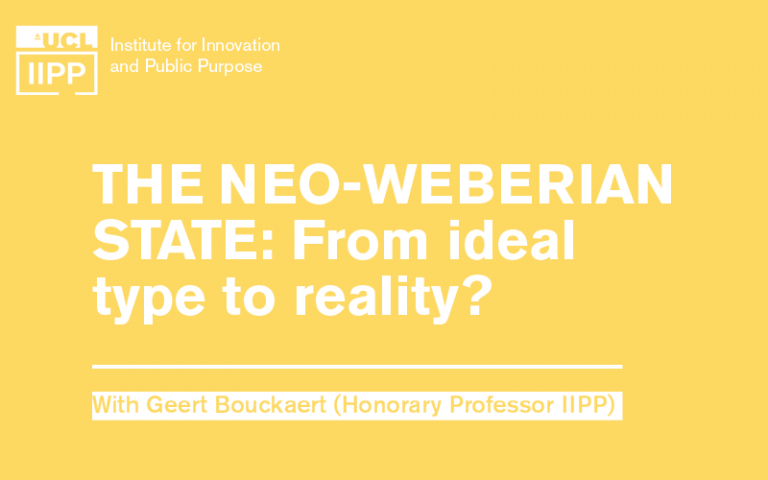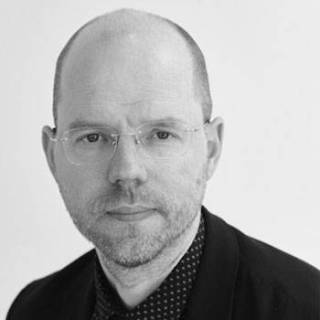The Neo-Weberian State: From ideal type to reality?
20 February 2023, 5:00 pm–6:00 pm

Join us at UCL IIPP for a talk by Geert Bouckaert, Honorary Professor at IIPP and Professor at KU Leuven’s Public Governance Institute. He is one of the most cited and influential public administration scholars globally and author of the classic book 'Public Management Reform'.
This event is free.
Event Information
Open to
- UCL students
Cost
- Free
Organiser
-
IIPP Comms
This event is open to IIPP students only
Taking place at UCL IIPP on Monday 20th February 2023 from 17:00 - 18:00 (GMT). Geert Bouckaert is an Honorary Professor at IIPP and a Professor at KU Leuven’s Public Governance Institute. He is one of the most cited and influential public administration scholars globally. His classic book Public Management Reform: A Comparative Analysis (co-authored with Christopher Pollitt) put forward the idea of the Neo-Weberian State as an ideal type for the post-NPM world. In this lecture, Geert will trace how the Neo-Weberian State is practised today and whether it is a sustainable and resilient re-inventing of bureaucracy for the 21st century.
Background Material related to this Lecture
For background, you can read more in the most recent issue of Max Weber Studies, a special issue on the Neo-Weberian State, edited by Wolfgang Drechsler and Sam Whimster (https://muse.jhu.edu/issue/48327), which based on the event at IIPP in January 2022.
The talk is being organised as an enrichment event as part of an IIPP MPA module led by Prof Rainer Kattel. Students who would like to be notified of other events in the future can sign up by emailing IIPPComms@ucl.ac.uk.
- Presenter: Geert Bouckaert, IIPP Honorary Professor
- Convenor: Prof Rainer Kattel, IIPP Deputy Director and Professor of Innovation and Public Governance
About the Speakers
Geert Bouckaert
Honorary Professor at UCL Institute for Innovation and Public Purpose

Professor Bouckaert is one of the globally-leading public administration scholars, his research profile is wide-ranging and covers topics that are of vital interest to IIPP’s development, for instance his research on public sector reforms in the OECD countries and his focus on performance management. He is a highly cited scholar and his book, Public management reform: A comparative analysis (co-authored with Christopher Pollitt), is in its 4th edition and already belongs to the canon of classic works in public administration.
More about Geert BouckaertProf Rainer Kattel
Deputy Director and Professor of Innovation and Public Governance at UCL Institute for Innovation and Public Purpose

He led Ragnar Nurkse School of Innovation and Governance for 10 years, building it into one of the leading innovation and governance schools in the region.
Professor Kattel has also served on various public policy commissions, including the Estonian Research Council and European Science Foundation. He has worked as an expert for the OECD, UNDP and the European Commission, and served as a member of E-Estonia Council advising the Prime Minister of Estonia. Currently, he leads the Estonian Government’s Gender Equality Council.
He has published extensively on innovation policy, its governance and specific management issues. In 2013, he received Estonia's National Science Award for his work on innovation policy.
More about Prof Rainer Kattel Close
Close

